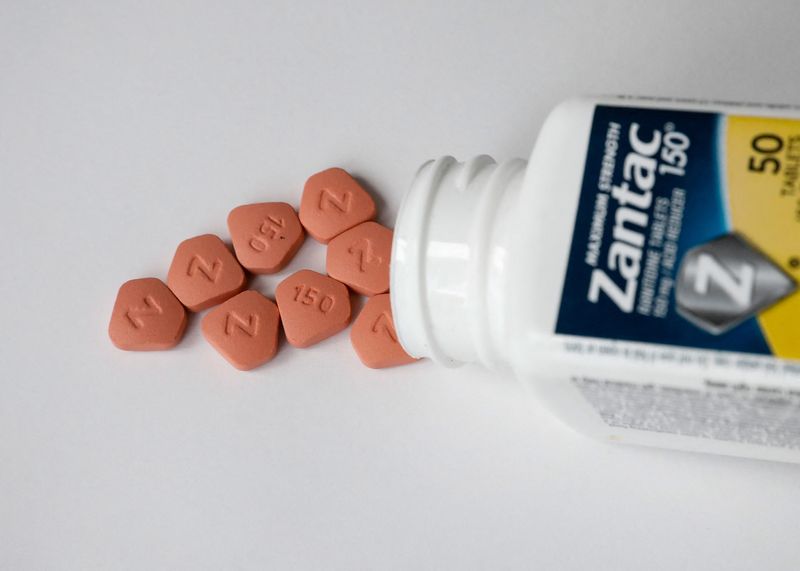By Diana Novak Jones
(Reuters) - U.S. attorneys for a woman who claims her colon cancer was caused by the now discontinued heartburn drug Zantac on Thursday told a jury in Chicago that pharmaceutical companies GSK (LON:GSK) and Boehringer Ingelheim knew the product could cause cancer if it was not handled properly but failed to warn the public.
Mikal Watts, who is representing 89-year-old Angela Valadez, said the companies knew that Zantac’s active ingredient, ranitidine, would turn into a cancer-causing substance called NDMA as it aged or was exposed to extreme temperatures, but did not ensure it was properly handled by transporters, distributors and stores.
Valadez's case is one of tens of thousands against GSK, Boehringer Ingelheim and other pharmaceutical companies, which have worried investors in recent years. It will offer the first test of whether the cancer claims in the long-running litigation will persuade a jury, since all cases previously set for trial settled or were dropped.
GSK and Boehringer Ingelheim are the only defendants in the trial, after other companies settled.
Watts told the jury the pills would change color as they degraded, but the companies would cover it up.
“They know we’re not going to take a product that looks bad, so they put a paint job on it,” Watts said.
Attorneys for GSK, which developed the active ingredient in Zantac but later sold the brand to other companies, and Boehringer Ingelheim, which sold the drug from 2006 until 2017, countered that Zantac has been repeatedly proven to be safe and effective and that no scientific or medical study had connected Zantac to cancer.
There is “no objective evidence linking Ms. Valadez’s cancer to Zantac,” GSK’s attorney Tarek Ismail told the jury. “No genetic test, lab report, imaging study… nothing whatsoever.”
Valadez, who said she took Zantac every day for at least 18 years, had a host of risk factors that made her more likely to develop colon cancer, Ismail said.
First approved in 1983, Zantac became the world's best selling medicine in 1988 and one of the first-ever drugs to top $1 billion in annual sales. It was originally marketed by a forerunner of GSK and later sold successively to other companies.
In 2020, the U.S. Food and Drug Administration asked drugmakers to pull Zantac and its generic versions off the market after NDMA was found in samples of the drug. Thousands of lawsuits began piling up in federal and state courts.
A new version of Zantac now on the market has a different active ingredient and does not contain ranitidine.
The companies notched a significant win in 2022 when a judge dismissed about 50,000 claims centralized in federal court in Florida. That judge concluded that the opinions of the plaintiffs' expert witnesses that Zantac can cause cancer were not supported by sound science.
More than 70,000 Zantac cases remain pending in the U.S., many of them in Delaware state court where a judge is considering similar arguments from drugmakers that plaintiffs' expert testimony should be kept out.
Some other cases were previously settled, including several individual cases just before trial, and about 4,000 state court lawsuits outside of Delaware against French drugmaker Sanofi (EPA:SASY) SA.
